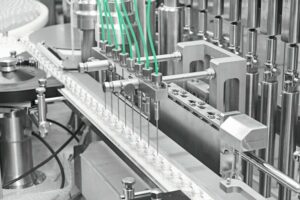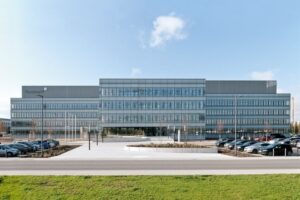Hager + Elsässer’s first complete plant for manufacturing water for injection (WFI) with membrane technology successfully started operation at Fresenius Medical Care’s Brazilian plant in Jaguariuna in August 2012. The WFI there is produced using the most advanced, leading-edge membrane technology. The plant comprises process stages for softening, reverse osmosis, electro-deionisation and ultrafiltration.
The author: Jochen Schmidt-Nawrot Key Account Manager Pharma, Hager + Elsässer
WFI plants focus strictly on achieving flawless microbiological quality. For many years, however, discussions have revolved around the use of distillation or membrane technology as the manufacturing process. Pharmaceutical manufacturers in Europe have no choice. The European Pharmacopoeia dictates distillation as the mandatory final treatment step for WFI production. This is not the case in Japan and the USA, where the respective pharmacopoeias allow alternative technologies that achieve equal or better results. One example is reverse osmosis teamed with electro-deionisation and ultrafiltration, a combination of processes that in Europe is authorised only for the production of highly purified water (HPW). As the quality requirements for WFI and HPW are identical, Japan and the USA logically make no distinction. Moreover, the results of a survey conducted by the European Medicines Agency (EMA) and the International Society for Pharmacoepidemiology (ISPE) in 2011 confirmed that when membrane technology is applied properly, it is possible to produce pharmaceutical water that easily fulfils the current requirements for WFI.
This is exactly where Hager + Elsässer’s special pharmaceutical competence comes into play: proven technologies for manufacturing purified water are combined with innovations in the field of membrane processes to obtain pharmaceutical water of the highest microbiological quality. Instead of distillation, the last treatment step following the conventional production process for purified water is ultrafiltration with a separation efficiency of 6000 MW to ensure that endotoxins and bacteria are reliably removed. The complete treatment system can be sanitised with hot water.
Membrane processes with advantages
Since the US pharmacopoeia also applies in Brazil and the product that Fresenius manufactures there is not exported to Europe, Fresenius’ Brazilian plant is able to use the membrane process, which is economical in terms of both investments and operation.
The Hager + Elsässer plant produces 6 m3 WFI an hour, which can be increased to up to 8 m3/h if required. Together with the existing plant (permeate-staged reverse osmosis), this adds up to a total capacity of 12 m3/h WFI at the site. Both WFI production plants are supplied from a central pretreatment unit featuring modern raw water ultrafiltration that significantly reduces particles, colloids and organic compounds in addition to bacteria and endotoxins. This results in substantially lower potential contamination of the feed water and guarantees trouble-free operation of the WFI production systems.
The plant is thermally sanitised by heating the entire WFI system up to a point directly preceding the storage tank to more than +80 °C. Ozone is used for the essential microbiological control in the storage and distribution system.
System design
An Ultralis 25 000 ultrafiltration plant, which separates organic materials, particles, colloids, bacteria and pyrogens, is employed for raw water pretreatment. Pharmasoft 700 TS, the volume-controlled double water softener system, is connected in series. Any microbiology in the resin beds is effectively killed off periodically by means of sanitisation with hot water.
HPW and WFI are produced with a combination of reverse osmosis, electro-deionisation and downstream ultrafiltration processes (Rocedis 6000 HPW-TS). Primary demineralisation takes place by means of reverse osmosis (RO), in which the water contents such as salt, TOC, particles, bacteria and pyrogens are retained on the surface of a semi-permeable membrane. Electro-deionisation (CEDI) is an electrochemical membrane process that demineralises the reverse osmosis permeate continuously to below the required ultrapure water conductivity. The levels fall far short of the maximum allowed by the pharmacopoeia.
In the final process step, germs and pyrogens are reliably removed by ultrafiltration. Excellent microbiological water quality is possible thanks to the integral design and the sepa-ration efficiency of 6000 MW. The levels achieved undercut the values stipulated by the pharmacopoeia by a considerable degree. The Sanicircle storage and distribution system assures constant sanitisation using ozone/UV.
Conclusion
Together with suitable pretreatment, the chosen combination of reverse osmosis, electro-deionisation and ultrafiltration allows reliable production of pharmaceutical water in WFI quality based on membrane processes. The ultrapure water easily fulfils the stringent microbiological requirements while keeping investment and operating costs down.
cpp-net.com/0313401
Share:






